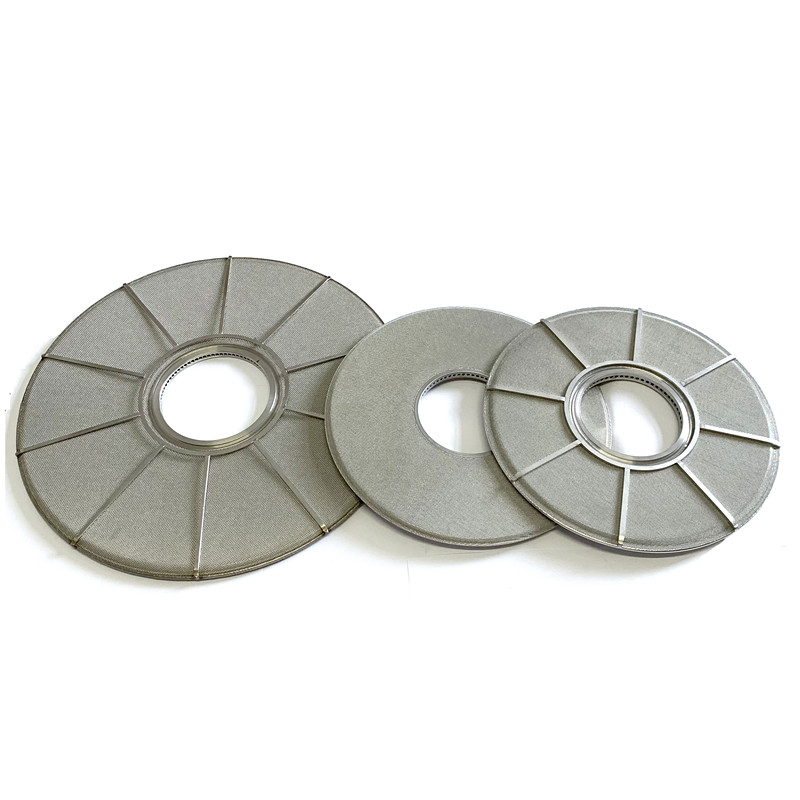Polymer leaf disc filter is also
called disc filter element, used for high viscosity melt
filtration. The disc filter design maximizes the effective
filtration area per cubic meter, realizing the efficient utilization of space
and miniaturization of filtration devices. The main material is
stainless steel sintering felt or multilayer stainless steel sintered wire mesh.
Features: filter element bear the pressure
equably, stable filtration performance, can be repeatedly cleaned, long service
.
Polymer leaf disc filter is
divided into two kinds, according to the material is divided into: stainless
steel sintering felt, stainless steel sintered wire mesh; According
to the structure: hard and soft. Among the above types, stainless
steel sintered mesh filter material has the greatest advantages of high
strength and impact resistance, and sintered felt has the advantages of long
service cycle and good air permeability.
Application
1,BOPP bidirectional stretch
polypropylene film
2,BOPA bidirectional stretch nylon
film
3,BOPET bidirectional stretch
polyester film
4, high viscosity melt filtration
5, chemical fiber liquid
filtration
Polymer Leaf Disc Filter ,BOPET Film Disc Filter ,SS316 Polymer Leaf Disc Filter,Polymer Filter Element Suzhou Haoxiang Screen Stencil Products Co.,Ltd , https://www.shaiwanghaoxiang.com
Zero calibration: When the instrument host is powered on, the instrument LCD will display the current combustible gas content in the air around the probe. If there is no flammable gas content in the air around the probe installation site, the probe display value should be 0% LEL At the same time, the output signal should be 4mA. If not, adjust it so that the probe display value is 0% LEL.
1. After the detectors are installed, they must be supervised and opened by professional and technical personnel on site.
2. After the detector is installed and adjusted once, it is not allowed to adjust or change the wiring at will, and it should be disposed according to the regulations.
3, National Standard "GB15322.2-2003" related documents stipulates that gas detector is once every six months calibration test (recommended), but if the probe is not bad, there is no quality anomaly, you can calibrate once a year.
Standard gas calibration: The calibration cover of the application accessories is placed on the sensor. The probe is marked with flammable gas (isobutane or methane) with a certain concentration. The display value of the probe should be gradually increased, and the value should be stable. The display value of the probe is the concentration of the standard combustible gas that is passed in. After the adjustment, the calibration is completed when the display is stable.
1. When the detector fails, it should be repaired by professional and technical personnel and reopened.
2. Observe the concentration display status of each channel frequently. If it is found that the concentration display of a certain road is always negative or that there is no gas in the field, and the concentration display is constant, it means that the zero point is not correct and should be adjusted and calibrated by the relevant technical personnel.

How to standardize combustible gas alarms with standard gas?
Gas detector daily inspection and calibration cycle (ie, calibration), combustible gas alarm needs calibration and calibration debugging cycle? Combustible gas alarm zero calibration and calibration inspection cycle at least once every 3 months.